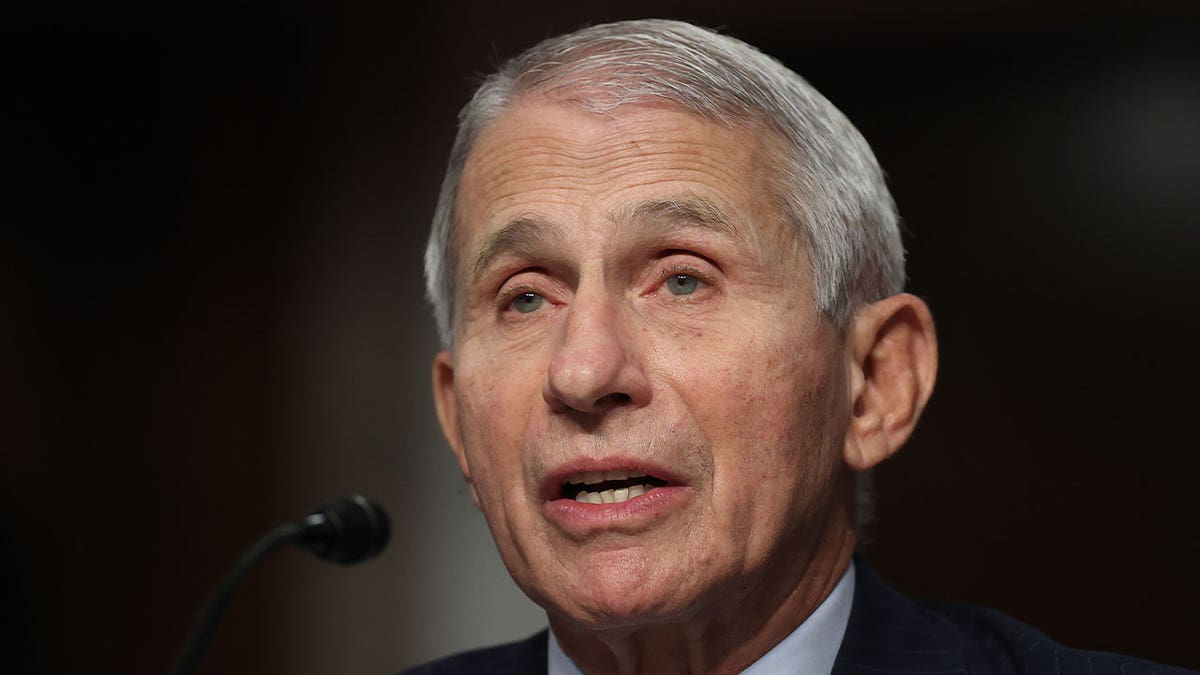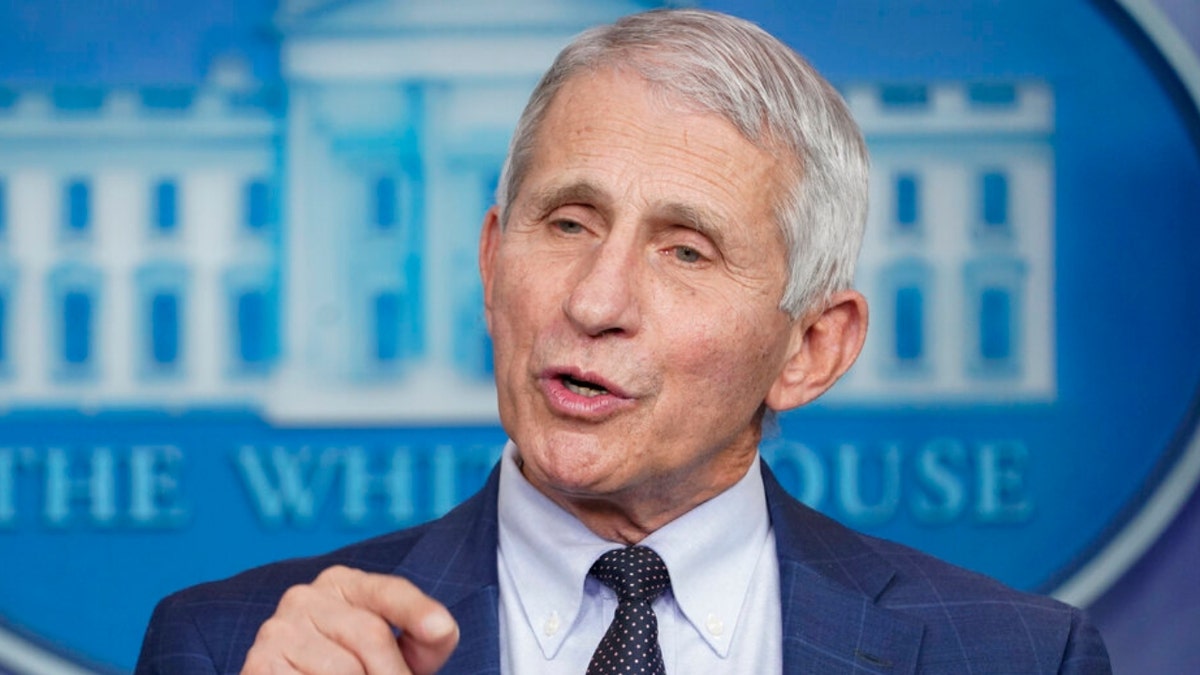Sen. Rand Paul: It's time we remove Dr. Fauci from his position
'One person shouldn't have so much power that they could use against their enemies,' Republican senator tells 'Jesse Watters Primetime.'
Dr. Anthony Fauci, director of the National Institute of Allergy and Infectious Diseases, warned Americans this week that they could soon face additional COVID-19 lockdown measures should a new strain of the virus cause case numbers to increase.
Fauci, who also serves as an adviser to President Biden, said the BA.2 subvariant could soon increase the rate of infections in America. He suggested that Americans should "be able to pivot" back and forth between a more common way of life and the measures that were taken in an attempt to slow the spread of the virus at the height of the pandemic.

National Institute of Allergy and Infectious Diseases Director Anthony Fauci testifies before the Senate Health, Education, Labor, and Pensions Committee on Capitol Hill on Nov. 4, 2021 in Washington, D.C. (Chip Somodevilla/Getty Images)
"If in fact, we do see a turnaround and a resurgence, we have to be able to pivot and go back to any degree of mitigation that is commensurate with what the situation is," Fauci said Thursday during an interview with CNN.
MEDIA'S ‘WEAPON’ FAUCI NO LONGER POLITICALLY USEFUL IN DEMOCRATS' TOUGH REELECTION BIDS: SEXTON
"We can't just say, 'We're done. We're going to move on.' We've got to be able to be flexible because we're dealing with a dynamic situation," he added, noting the new variant to be less fatal than the Omicron variant. "The overall mortality is actually down. It’s a very interesting situation where the cases are going up, but it does not, at this point in time, appear to be any degree of severity."
Fauci said he "would not be surprised in the next few weeks, given the fact that we’ve begun to open up, and we have an increase in the BA.2 variant, that we’ll be seeing an increase in cases."
During the segment, Fauci seemingly dismissed concern over the crippling economic burdens associated with lockdown measures or other precautions.

Dr. Anthony Fauci, director of the National Institute of Allergy and Infectious Diseases, speaks during the daily briefing at the White House in Washington, Wednesday, Dec. 1, 2021. (AP Photo/Susan Walsh, File)
A Johns Hopkins University meta-analysis of several studies in February found that lockdowns during the first COVID-19 wave in the spring of 2020 only reduced COVID-19 mortality by .2% in the U.S. and Europe.
"While this meta-analysis concludes that lockdowns have had little to no public health effects, they have imposed enormous economic and social costs where they have been adopted," the researchers wrote. "In consequence, lockdown policies are ill-founded and should be rejected as a pandemic policy instrument."
A study from the National Commission on COVID-19 and Criminal Justice last year found that domestic violence incidents increased 8.1% in the U.S. after lockdown orders were issued.
There have also been additional medical concerns over the impacts of lockdown measures.
The New England Journal of Medicine reviewed the psychological impact of people in quarantine, finding "numerous emotional outcomes, including stress, depression, irritability, insomnia, fear, confusion, anger, frustration, boredom and stigma associated with quarantine, some of which persisted after the quarantine was lifted."

(iStock)
CLICK HERE TO GET THE FOX NEWS APP
Fauci has faced criticism after he shifted positions and contradicted himself on a number of guidelines, including the usage of face masks and the threat of COVID-19 in America.
Over the past day, the U.S. recorded 52,884 new coronavirus cases, as well as 1,685 deaths, according to Johns Hopkins University.
Fox News' Paul Best and Shiv Sudhakar contributed to this article.

























